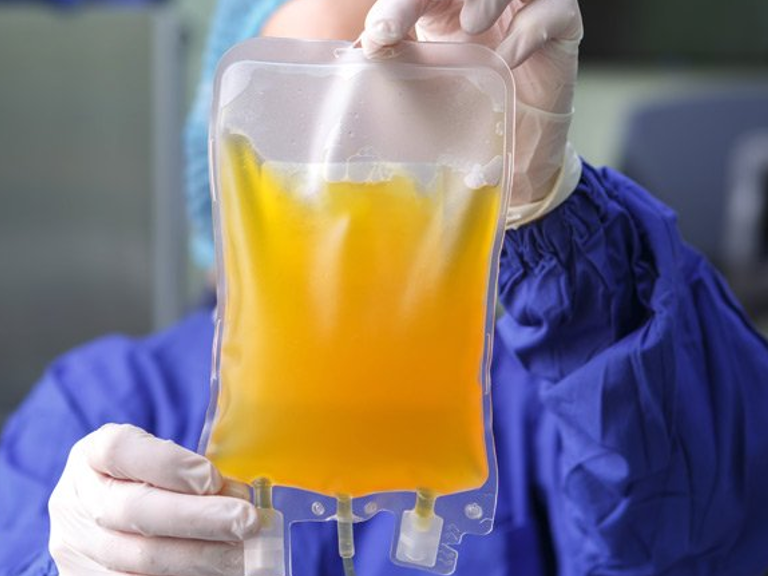Dr. Michele Donato, the lead researcher of the New Jersey studies on COVID-19 survivors’ blood plasma, conducted by the Hackensack University Medical Center said that coronavirus survivors could potentially become the medicine chest for others who got transmitted by the virus.
Survivors’ Blood Plasma Transfusions Significantly Reduce COVID-19 Complications
Donato added that those who survived had to have the treatments for the variants within their body since the antibodies of the virus which was in the community at that time are contained in their plasma.

It was in last March that Dr. Donato and his team began a set of studies on survivors’ blood plasma, during the early outbreak of the coronavirus in the U.S.
Hackensack winded up the studies in April after the team made their research and assessments on 51 hospitalized patients.
The Researchers’ team could find that the survivors produce several antibodies which can fight against various diseases. Their study showed that these antibodies which they carry within them together act as a weapon against the severe complications from the COVID-19 pandemic.
The study also proved that the virus gets blocked during its entry to the human body, if there is a presence of antibody-rich blood plasma or being infused early. Hence, the study brought in a novel way to fight against the coronavirus by transfusing the survivors’ plasma into the newly infected humans.
The study also found that the newly detected variants of the virus also can be defeated with this technique, since the survivors of the new variants are also possessed with the potential plasma that can be used against that particular variant among those who contracted the same.
Researchers said that the survivors can donate their plasma after they are free of the symptoms of COVID-19 for a continuous fortnight. Once it is donated, the plasma can be transfused into the new infections in three days.
Dr. Donato said that the process of plasma collection is simple and very low-tech.
An experience with the positive patients of COVID-19 at Hackensack Medical Center was published in a journal of the American Society for Clinical Investigation. The findings of the experiment said that two essential factors make the plasma treatment successful. Firstly, the plasma samples for the treatment should be collected from super donors, who have higher levels of antibodies present in their blood plasma but haven’t necessarily had a more severe case of the disease.
The second factor is that the collected samples of the plasma should be transfused into the patients as early as possible after they get contracted with the coronavirus. This is because it won’t make any difference in patients with highly complicated conditions, especially in those who are to be shifted to ventilators.
After Hackensack, the Mayo Clinic also conducted a similar but much larger study on the same. It included 3,000 hospital patients who have fewer complications related to the virus attack.
The Mayo clinic’s study stated that when the patients were treated with infusions of higher levels of antibodies, they showed a lower risk of death than similar patients who received normal treatment.
